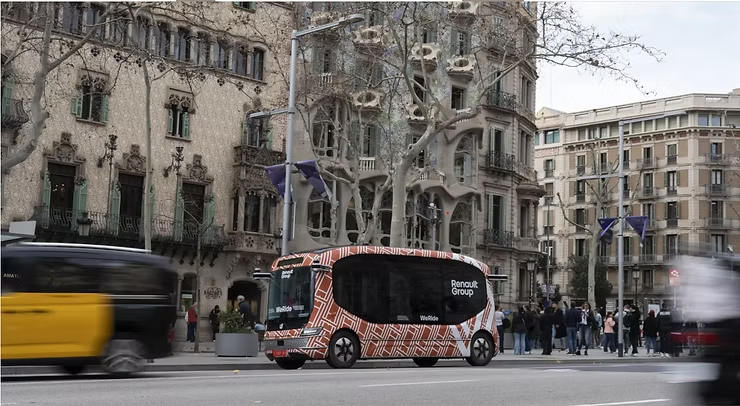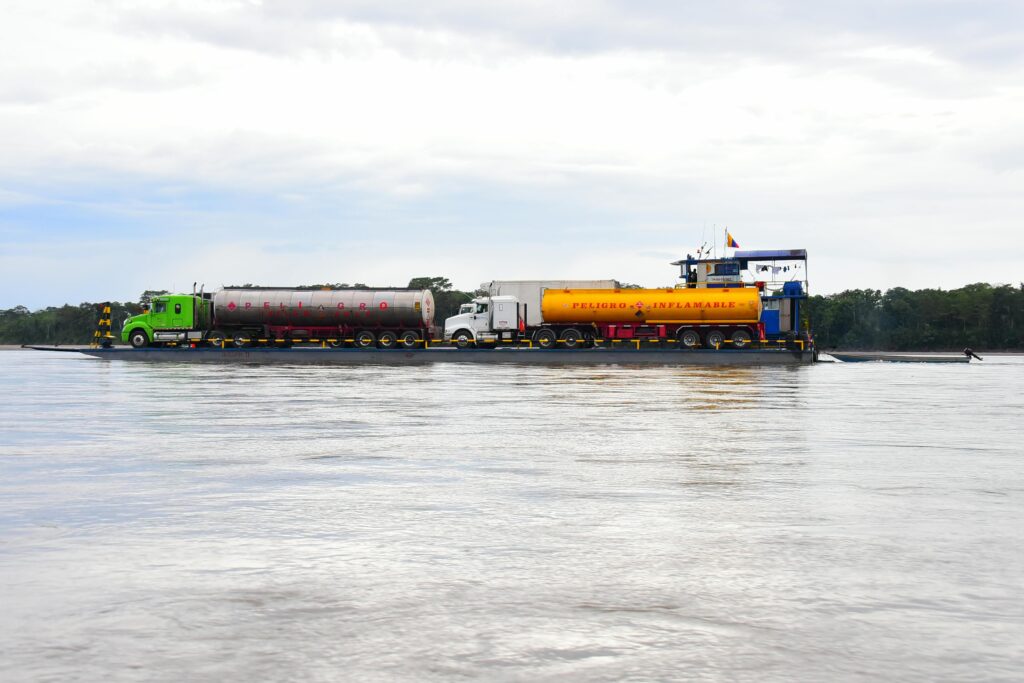In May 2024, Renault Group introduced its autonomous vehicle strategy and, in partnership with WeRide, conducted its first-ever open-road trial in Europe. This trial featured two autonomous minibuses operating during the Roland-Garros tennis tournament.
Covering 1,000 km and transporting nearly 700 passengers, the large-scale test highlighted both the technological readiness and the practicality of this transport solution.
Following this success, numerous mobility stakeholders—including local authorities, transport operators, and private site managers—have expressed interest in deploying the technology in their regions. New trials are already underway in Zurich (Switzerland), Valencia (France), and Barcelona (Spain), with more set to be announced soon.
Barcelona (Spain): in the heart of a major European city
From March 10 to 14, Renault Group and WeRide are offering the public a glimpse into the future of urban mobility by deploying two autonomous electric minibuses on a 2.2-kilometer open-road loop through the streets of Barcelona.
By operating these autonomous shuttles in a dense and complex urban setting, the trial showcases the advancements in technology for automated public transportation.
It also reflects Renault Group’s vision for the future of public transport in Europe—leveraging autonomous mobility to create more livable cities, improve accessibility, and enhance the efficiency and sustainability of urban transportation.
Valence (France): mobility made easier for peri-urban areas
Following a trial period from March 10 to April 19, the launch of a commercial Level 4 automated shuttle service is planned for July 2025.
Beti (a French private public transport operator), Macif (the vehicle insurer and beti’s partner), WeRide, and Renault Group are collaborating to establish the first high-service automated mobility network in Valence, France. This network will connect the TGV railway station to key destinations within the surrounding 162-hectare business park.
The two shuttles will operate along a 3.3-kilometer open-road route, addressing the practical transportation needs of Valence TGV station users, as well as the 150 companies and 3,000 employees in the business park. The service will link the station, a remote long-term parking facility, and the area’s catering hub.
This groundbreaking partnership between four major stakeholders embodies a shared vision: making automated shared mobility accessible to all regions, bridging gaps in rural and suburban areas, accelerating the ecological transition, and improving access to employment, healthcare, education, and leisure.
Zurich Airport (Switzerland): private area with high security requirements
Since January 2025, WeRide has been conducting a trial at Zurich Airport (Switzerland) to facilitate employee transportation between terminals. This initiative showcases the capability of autonomous technology to function effectively in complex environments while meeting the stringent safety and reliability standards required in an airport setting.
Renault Group and the autonomous vehicle
Renault Group is adopting a pragmatic and tailored approach to autonomous vehicles, distinguishing between the needs of personal vehicles and public transportation.
For personal vehicles, given the current market landscape, the Group is prioritizing advanced driver assistance systems (ADAS) such as Adaptive Cruise Control and Lane Keeping Systems. These Level 2 and Level 2+ features enhance safety and comfort while keeping the driver responsible for vehicle operation.
However, Renault Group remains agile and closely monitors changes in costs and regulations. When market conditions become favorable, the company is prepared to introduce higher levels of autonomy for personal vehicles.
In contrast, for public transportation, Renault Group sees an immediate opportunity for Level 4 autonomous vehicles. These vehicles, capable of independent operation within a defined environment (Operational Design Domain) under remote supervision and without an onboard operator, align with the growing need for sustainable urban transport solutions.
With the expansion of low-emission zones, cities and local authorities face increasing public transit challenges. Experts estimate that several thousand autonomous electric minibuses will be required over the next decade. Various trials have demonstrated their effectiveness, paving the way for a transport system that is flexible, accessible, secure, and carbon-free.
As a leader in carbon-free mobility, Renault Group is exploring the development of a robotic electric minibus platform by 2030, designed to integrate automation technologies from specialized partners.














